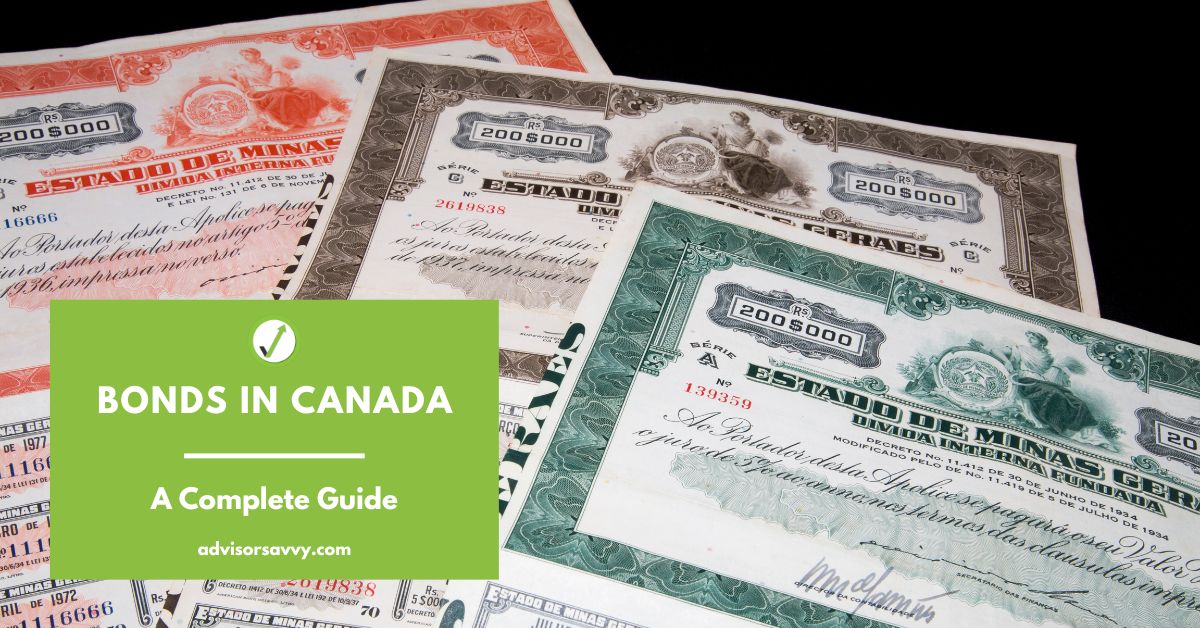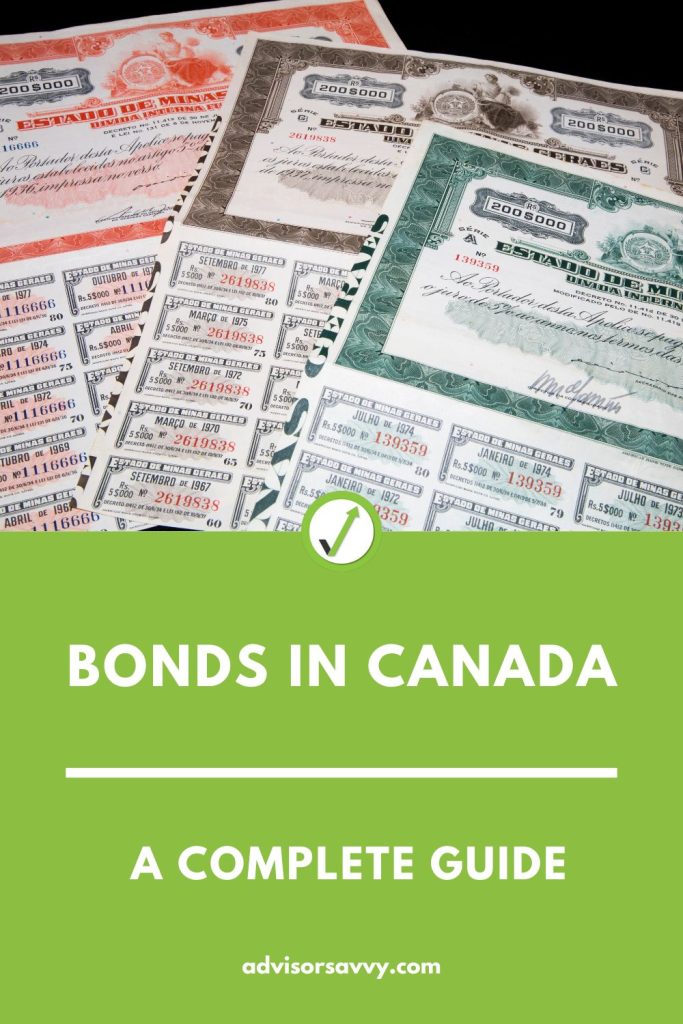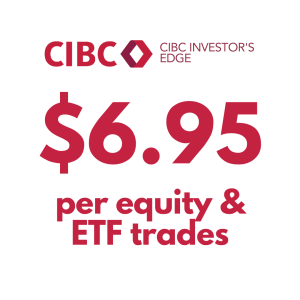
Understanding what bonds are about is an important part of education and growth for investors everywhere, including Canada. Bonds in Canada are great for investors looking to strike a balance between equities and fixed income. They also allow you to diversify the types of assets in your portfolio if primarily invested in stocks, ETFs and mutual funds.

Table of contents
A bond is a type of investment product where the issuer owes the holder debt. Cash is provided to the holder from the issuer. How bonds work to fit into one’s investment strategy depends on their goals, time frame, and ability. In Canada, you can purchase bonds from the issuing party or through your brokerage account. This article will guide you through the basics of bonds and the ways to buy bonds in Canada. Continue reading to learn more!
CIBC Investor’s Line Offer
Up to $6.95 per online stock or ETF trade. Plus, there’s no minimum account balance.
What are bonds in Canada?
A bond is a loan that a bond purchaser gives a bond issuer. This could be a government or corporate company in need of capital. In other words, it’s a type of equity with the purpose to raise money. In some cases, these bonds could be in the form of assets like stocks, real estate, or commodities. The bond market in Canada remains one of the largest investment security markets in the world. Thereby providing investors with several options to earn more on their money.
Investors who purchase these bonds are lending money to the bond issuer in return for the bond issuer to pay back the loan. Another way for the bond issuer to pay back the principal is to pay interest, which can be fixed or variable. The current interest rates in Canada can affect bond returns.
However, every bond carries some risk including the potential for default or the failure of the issuer to fully repay the loan. Independent credit rating services can evaluate the risk of bond issuers. By publishing these credit ratings, investors can evaluate risk and make a decision accordingly. An issuer with a high credit rating is most likely to pay a lower interest rate than one with a low credit rating. High risk equals high reward and vice versa.
Related Reading: 7 Best High Yield ETFs in Canada
CIBC Investor’s Line Offer
Up to $6.95 per online stock or ETF trade. Plus, there’s no minimum account balance.
What is the interest rate on bonds in Canada?
When investing in bonds, it’s important to know the role that interest rates play and how they can affect your bond yields. If you intend to hold your bond to maturity, changes in interest rates will only affect you if there is a drop in the rates.
If existing interest rates rise after the issuance of the bonds, the prices of those bonds will fall. This is because as the interest rate increases, new bonds are issued with higher coupon rates making the old bonds less valuable.
With a decline in interest rates, the prices of existing bonds will increase. Thereby making it possible for an investor to sell a bond for a higher purchase price. In other words, buyers will want to pay less for an existing bond with a lower coupon rate.
What is the 10-year bond yield in Canada?
The 10-year bond yield in Canada is the yield an investor receives for investing in a Canadian government-issued bond with a maturity of 10 years. The 10-year bond yield benchmark in Canada is at 3.25%, compared to 3.33%, which is the previous market percentage yield. Last year, 2.83% was the record, which is lower than the long-term average of 4.31%.
The Canadian 10-year benchmark bond yield is included on the long end of the yield curve. It can be affected by supply and demand, the outlook for inflation, and economic growth. The yield of the 10-year bond remains closely observed and controlled by several financial institutions. Especially since lowering yields can communicate insecurity in the economy.
CIBC Investor’s Line Offer
Up to $6.95 per online stock or ETF trade. Plus, there’s no minimum account balance.
What is the 5-year Canada bond rate?
The 5-year Canada bond yield rate represents the percentage of return investors get if they hold 5-year Canadian debt to maturity. Since government bonds have the full guarantee of the Canadian government, the 5-year Canadian bond is the safest Canadian investment in the eyes of many. It has a risk-free status, high liquidity, and remains mostly used as a standard for other interest rates in Canada.
Fixed interest rates are indirectly based on the government of Canada’s bond yields. This is why the 5-year fixed interest rate term is popular in Canada. While it can drift for a short while, the difference between 5-year yields and 5-year fixed rates is constantly on a long-term average.
What is the highest bond yield in Canada?
The highest bond yield in Canada is the 10-year government bond. It is way above the 3.2% level. Consumer prices rose to 4.4% annually and went above the 4.1% expectations throughout the next ten months of slowing inflation. In addition, the 10-year government bond has paid the most out of all the options.
According to the BoC structure on bond yields, the possibility that inflation will meet the 3% level by the third quarter raises a major issue. This concerns policymakers resuming the complex campaigns after the hike rate pause in most banks. Since the payout is scheduled to be higher than usual, cash flow may become a problem.
What are the safest bonds in Canada?
Government of Canada bonds, backed by the federal government, offers attractive returns. They are known as the safest Canadian bond with terms of 1 to 30 years. They are also considered risk-free if left to mature. No matter how much you want to invest, every principal and interest amount is guaranteed by the Government of Canada.
This also applies in cases where you choose to hold your investments to full maturity. Luckily, the Government of Canada bonds are on the current market and sold at any market value, no matter the time.
Related Reading: Best Dividend ETFs in Canada for 2023
Do you pay tax on bonds in Canada?
Interest income earned on assets, such as Canada Savings Bonds and government treasury bills, are fully taxable at your marginal tax rate. Income yielded from bonds is taxed as investment income, as opposed to other types of income. The only exception is if the investments are held within a tax-sheltered account, like a TFSA or RRSP.
How to buy bonds in Canada
There are two ways to buy bonds in Canada, which include direct purchase through a broker or you can purchase them through your brokerage account. More information can be found below.
Option 1: Buying Bonds Directly
Investors interested in buying bonds can go directly to their financial institution or a licensed financial advisor. They can provide a list of bonds for you to choose from, which you can purchase in person, online, or by phone. Through this option, you own the bond directly and outright.
A lot of bonds require a small fee to complete the purchase, better known as commission. Your broker may also charge you a flat fee to make the purchase. After a successful purchase, any interest payments will be deposited in the bank account of your choice. The designated account is also the official account containing the money deposited until your bond matures. To be able to sell your bond early, you will have to reach out to a legalized broker.
Option 2: Buying Bonds through your Brokerage via an ETF
Investors that own a brokerage account can purchase bond exchange-traded funds (ETFs), which will help you access several bonds in a single product. Bond ETFs are built for different purposes, which allows you to choose the type of ETF that meets your needs. With this option, you don’t own the bond directly. Rather, you own a portion of a group of bonds held within an ETF.
Bond ETF prices may change based on current market conditions. As expected, most brokers may charge a fee for buying and selling ETFs. However, bond ETFs may also charge a small management expense ratio. When bonds mature, the ETF manager will purchase new bonds to earn more income. Interest or dividend payments are usually involved, which occur every month and are directly paid into your brokerage account.
Where to buy bonds in Canada?
Investors or organizations may buy investment securities like bonds through the Bank of Canada, a financial institution, or a broker. The Bank of Canada buys bonds directly from the government to help balance the stock of banknotes that exists on their balance sheet. Although, quantitative easing also allows the bank to buy bonds on the open market.
Are Canada Savings Bonds still available?
Due to the high cost of administration, the Government of Canada discontinued Canada Savings Bonds in December 2021. However, if you purchased a Canada Savings Bond prior, you can still cash them out. Below are the ways you can cash your Canada Savings Bond:
- Certified Bond Owners: Provide your financial institution with bond certificates to redeem them.
- Canada RSP and Canada RIF Holders: Visit the bank to withdraw or transfer the funds from your savings registered plan.
- Payroll Savings Plans Owners: Every bond type will have reached maturity and will require an automatic payout.
Related Reading: Investment Ideas in Canada
Are bonds a good investment in Canada?
Bond investments in Canada may be a good idea if you are interested in creating a fixed income in your portfolio. In addition, bonds can balance out volatile, high risk investments, like stocks or ETFs. One of the factors that could affect your need for bond income is the time frame of your financial goals. If you are a regular asset investor and looking for low-risk and fixed-income options, bonds are worth considering. However, this only works for high-grade bonds. On the contrary, junk bonds are good for people interested in making higher returns while assuming high risk.
Do you need help figuring out if bonds are the right investment choice for you? A financial advisor can guide you in the right direction. Fill out this quick questionnaire to be matched with an advisor!
Read More: Top 10 Mutual Fund Companies in Canada

